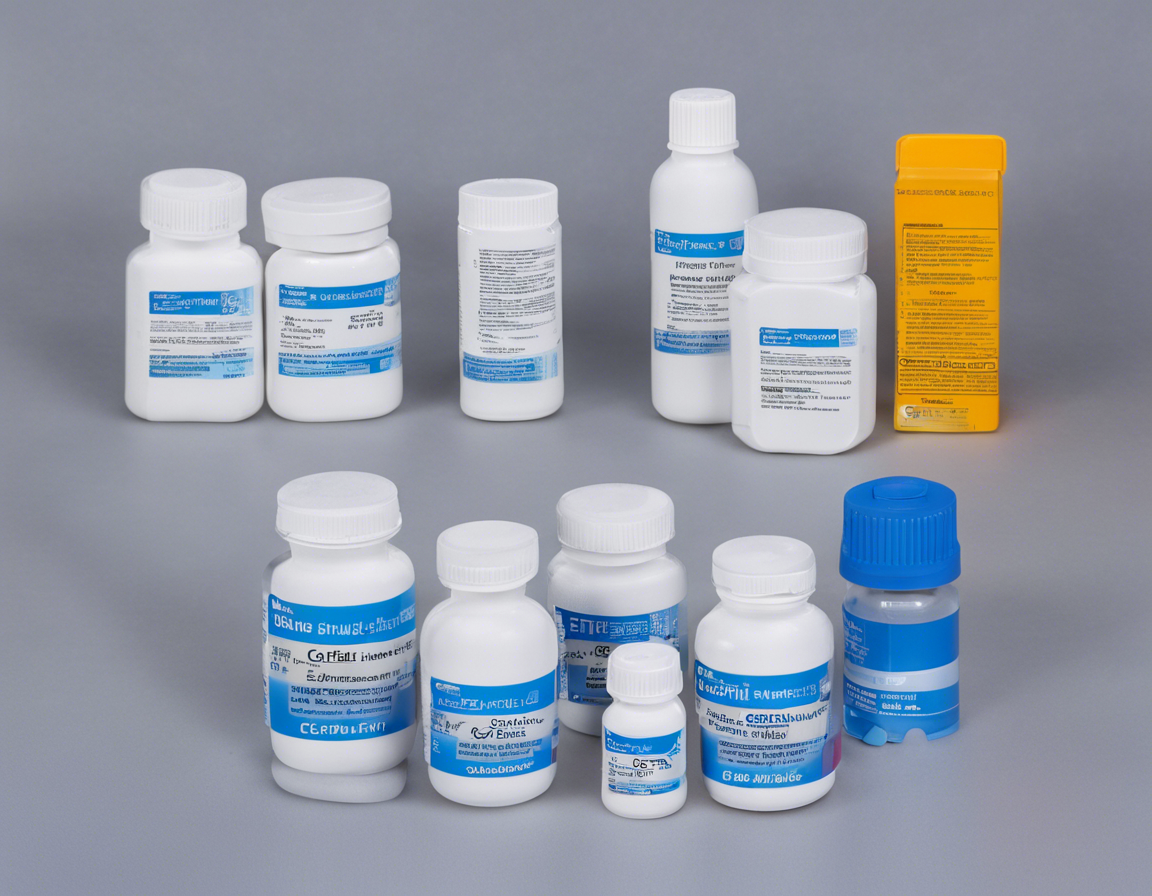Cefixime is a broad-spectrum antibiotic used to treat a variety of bacterial infections. It belongs to the cephalosporin class of antibiotics and is commonly available in tablet form. In this article, we will explore the various uses of cefixime tablets, including the conditions it treats, dosage guidelines, potential side effects, and other important information.
Understanding Cefixime Tablets
Cefixime tablets are primarily prescribed for the treatment of respiratory tract infections, urinary tract infections, ear infections, throat infections, skin infections, and gonorrhea. The medication works by stopping the growth of bacteria in the body, thereby helping to alleviate symptoms and clear up the infection.
Common Uses of Cefixime Tablets
- Respiratory Tract Infections: Cefixime is often prescribed for infections like pneumonia, bronchitis, and sinusitis.
- Urinary Tract Infections: It can be used to treat conditions such as cystitis and pyelonephritis.
- Ear and Throat Infections: Cefixime can help combat infections like otitis media (ear infection) and pharyngitis (sore throat).
- Skin Infections: It is effective against certain types of cellulitis and impetigo.
- Gonorrhea: Cefixime is a common treatment for this sexually transmitted infection.
Dosage Guidelines for Cefixime Tablets
The dosage of cefixime tablets can vary depending on the type and severity of the infection. It is crucial to follow the advice of a healthcare professional or the instructions provided on the medication label. The typical dosages are as follows:
- Adults: The usual dose for most infections is 200 mg once a day or 400 mg divided into two doses.
- Children: The dosage for children is based on their weight, and it is typically lower than that for adults.
Important Considerations for Dosage
- Take with Food: Cefixime tablets are usually taken with a meal to improve absorption.
- Complete the Course: It is essential to finish the full course of antibiotics as prescribed, even if symptoms improve before the medication is finished.
Potential Side Effects of Cefixime Tablets
Like all medications, cefixime tablets can cause side effects in some individuals. It is essential to be aware of these potential reactions and seek medical attention if they persist or worsen. Common side effects may include:
- Nausea and vomiting
- Diarrhea
- Headache
- Dizziness
- Allergic reactions
In rare cases, cefixime can cause more severe side effects such as severe skin rash, jaundice, or difficulty breathing. If you experience any of these symptoms, seek medical help immediately.
Interactions and Precautions
Before taking cefixime tablets, inform your healthcare provider about any existing medical conditions, allergies, or medications you are currently taking. Cefixime may interact with certain drugs, including blood thinners and diuretics, so it is essential to discuss potential interactions with your doctor.
Precautions to Take While Using Cefixime Tablets
- Pregnancy and Breastfeeding: Inform your healthcare provider if you are pregnant, planning to become pregnant, or breastfeeding.
- Renal Impairment: Adjustments to the dosage may be necessary for individuals with kidney problems.
- Allergic Reactions: If you have a history of allergic reactions to cephalosporin antibiotics, inform your doctor before taking cefixime.
Frequently Asked Questions (FAQs) about Cefixime Tablets
- Can cefixime tablets be used to treat viral infections?
-
No, cefixime is only effective against bacterial infections and cannot treat viral illnesses like the flu or common cold.
-
How quickly does cefixime start working?
-
Symptoms of the infection may start to improve within a few days of starting treatment, but it is essential to complete the full course of antibiotics.
-
Are cefixime tablets safe for children?
-
Cefixime can be prescribed for children, but the dosage will be adjusted based on the child’s weight and age.
-
What should I do if I miss a dose of cefixime tablets?
-
If you miss a dose, take it as soon as you remember. However, if it is almost time for your next dose, skip the missed dose and continue with your regular dosing schedule.
-
Can cefixime tablets interact with over-the-counter medications?
- It is possible for cefixime to interact with certain over-the-counter medications, so it is advisable to consult with a healthcare professional before combining different treatments.
In conclusion, cefixime tablets are a valuable antibiotic option for treating a range of bacterial infections. By understanding their uses, dosage guidelines, potential side effects, and precautions, individuals can use this medication safely and effectively under the guidance of a healthcare provider.
